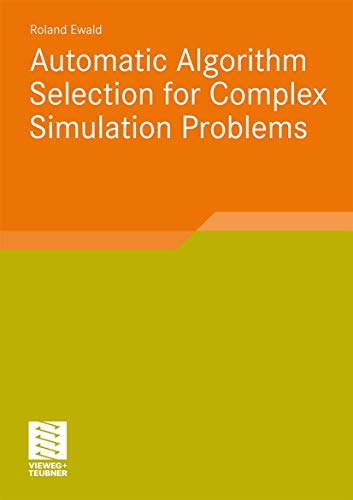To select the most suitable simulation algorithm for a given task is often difficult. This is due to intricate interactions between model features, implementation details, and runtime environment, which may strongly affect the overall performance. An automated selection of simulation algorithms supports users in setting up simulation experiments without demanding expert knowledge on simulation.
Roland Ewald analyzes and discusses existing approaches to solve the algorithm selection problem in the context of simulation. He introduces a framework for automatic simulation algorithm selection and describes its integration into the open-source modelling and simulation framework James II. Its selection mechanisms are able to cope with three situations: no prior knowledge is available, the impact of problem features on simulator performance is unknown, and a relationship between problem features and algorithm performance can be established empirically. The author concludes with an experimental evaluation of the developed methods.
To select the most suitable simulation algorithm for a given task is often difficult. This is due to intricate interactions between model features, implementation details, and runtime environment, which may strongly affect the overall performance. An automated selection of simulation algorithms supports users in setting up simulation experiments without demanding expert knowledge on simulation.
Roland Ewald analyzes and discusses existing approaches to solve the algorithm selection problem in the context of simulation. He introduces a framework for automatic simulation algorithm selection and describes its integration into the open-source modelling and simulation framework James II. Its selection mechanisms are able to cope with three situations: no prior knowledge is available, the impact of problem features on simulator performance is unknown, and a relationship between problem features and algorithm performance can be established empirically. The author concludes with an experimental evaluation of the developed methods.
